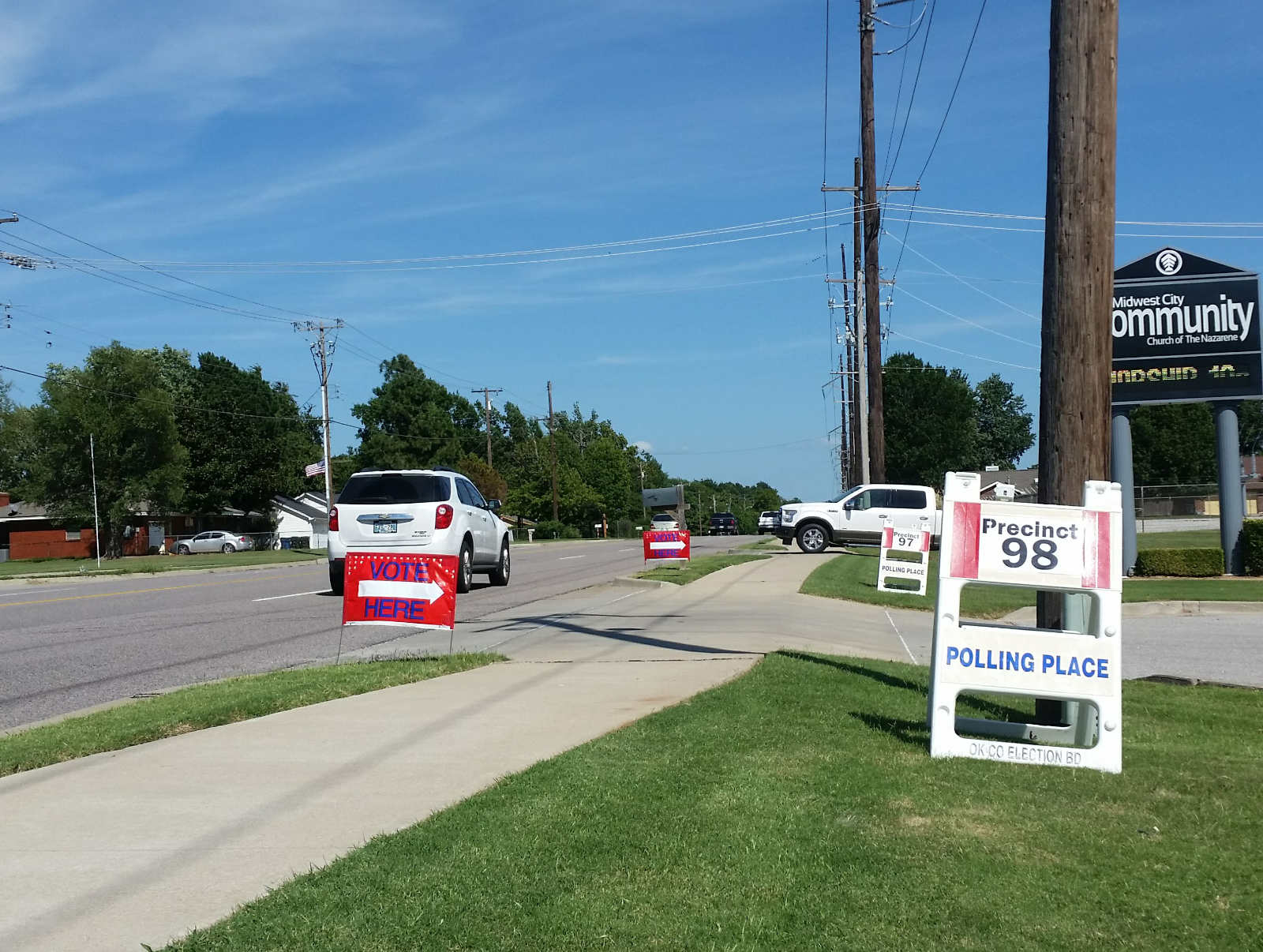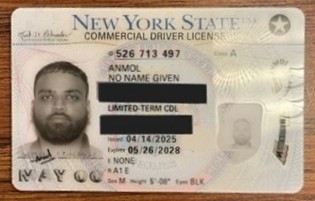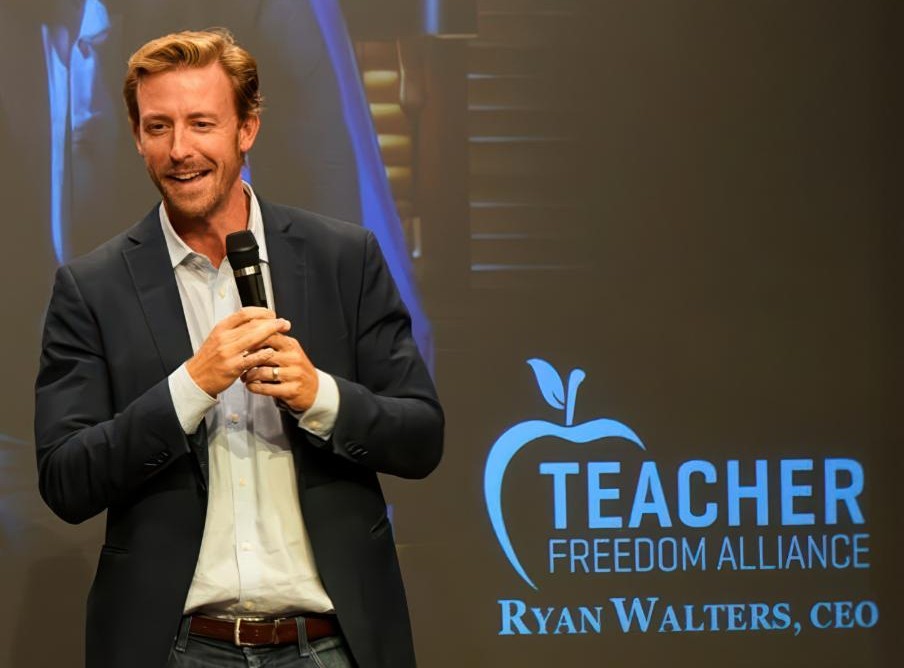Oklahoma Presidential Primary Election
This was the largest number of states holding an election during the 2020 nominating process. With both California and Texas – the two most populous states in the country – holding primaries on Super Tuesday, more than one third of the U.S. population voted on that day.
Other than New Hampshire’s, Oklahoma’s primary ballot requirements are the least cumbersome. All that was required for candidates to qualify for the ballot was to submit a Statement of Candidacy form along with a $5,000 (Five-Thousand Dollar) filing fee, or a petition with signatures submitted in lieu of the filing fee. During the December 2-4, 2019 candidate filing period, 22 candidates filed for a place on the ballot in Oklahoma.
Democrats who filed included: Tulsi Gabbard, 38; Amy Klobuchar, 59; Elizabeth Warren, 70; Bernie Sanders, 78; Kamala Harris, 55; Pete Buttigieg, 37; Andrew Yang, 44; Deval Patrick, 63; Michael R. Bloomberg, 77; Tom Steyer, 62; Joseph R. Biden, 77; Michael Bennet, 55; Marianne Williamson, 67; Julián Castro, 45; and Cory Booker, 50.
Republicans filing for the ballot were: Zoltan G. Istvan, 46; Roque “Rocky” De La Fuente, 65; Matthew John Matern, 54; Bob Ely, 61; Donald J. Trump, 73; and Joe Walsh, 57.
Democrat Kamala Harris ended her campaign the same week as the Oklahoma filing and withdrew her name from the ballot. Other Democrats later suspended their campaigns, but it was too late to withhold their names from the ballot which had to be printed in advance of the election. Therefore, Oklahoma voters found fifteen Democrats and six Republicans on the ballot. No one filed for a Libertarian primary. The Libertarian Party instead held a state convention to select delegates to their national convention which is scheduled to be held in Austin, Texas, May 21-25.
Over one-third of the delegates needed to secure the nomination for the respective political parties were determined on Super Tuesday. In 2020, there will be 4,750 Democrat delegates: 3,979 pledged delegates and 771 automatic delegates, also known as superdelegates. On Super Tuesday, 1,345 of the delegates pledged to a candidate were determined. Automatic delegates include members of the Democratic National Committee, Democratic members of Congress, Democratic governors, or distinguished party leaders, including former presidents and vice presidents. Those delegates are free to support any presidential candidate of their choosing.
On Super Tuesday, Democrat voters in Oklahoma selected 37 of the 42 delegate positions going to the Democratic National Convention. The national convention had been scheduled for July 13-16, in Milwaukee, Wisconsin. However, it has been shifted to the week of August 17th due to delays resulting from the corona virus pandemic. The five Superdelegates include the four Oklahoma members of the Democratic National Committee and the single Democrat in Congress, U.S. Representative Kendra Horn.
There will be 2,551 Republican delegates this year: 2,441 pledged delegates and 110 unpledged delegates. On Super Tuesday, 862 of the pledged delegates were determined. Oklahoma Republicans selected 43 delegate positions going to the Republican National Convention which will be held August 24-27, 2020, in Charlotte, North Carolina. While three of the delegate positions will be held by the National Committeeman, National Committeewoman, and the State Chairman, they will be pledged delegates based upon the vote on Super Tuesday.
Oklahoma is a closed primary state, meaning only registered members of a recognized political party may vote in that party’s primary elections. However, state law gives recognized parties the option to open its primaries to registered Independents. The Oklahoma Democratic Party opted to allow Independents to participate in their primaries in 2020.
Both major political parties follow a similar delegate selection process. Delegates are allocated proportionally based on the votes cast in the primary election. Some of the delegates are awarded based on the vote in each of the state’s five congressional districts. The remaining delegates are allocated based on the statewide vote. A candidate is typically only eligible to receive a share of the pledged delegates if they win at least 15 percent of vote, either in the statewide contest, or within a congressional district. However, just because a candidate reaches that threshold, they are not guaranteed to receive delegates. If a candidate gets more than 50 percent of the vote, they may be awarded all of the delegates in a congressional district or statewide, even though other candidates received over 15 percent. And, if several candidates meet the threshold, only the top vote getters are awarded delegates.
There were 303,977 votes cast in the Democrat Presidential Primary, which included independent voters. Four of the Democrats received enough votes either statewide, or within a congressional district to be awarded delegates. Joe Biden finished in first place in Oklahoma with 117,552 votes (38.7%) and was allocated 21 delegates. Bernie Sanders came in second with 77,302 votes (25.4%) and was allocated 13 delegates. Michael Bloomberg was in third place with 42,243 votes (13.9%) and 2 delegates. And, Elizabeth Warren received 40,676 votes (13.4%) and one delegate.
There were 295,409 votes cast in the Republican Primary, which is remarkable considering there was not a competitive contest. President Donald J. Trump was the runaway winner receiving 273,562 votes (92.6%) and all 43 delegates. The other five candidates split the remaining vote: Joe Walsh 10,989 votes (3.72%), Matthew Matern 3,805 votes (1.29%), Bob Ely 3,292 votes (1.11%), Roque De La Fuente 2,464 votes (0.83%), and Zoltan Istvan 1,297 votes (0.44%).
The actual delegates (people) who will cast the votes at the national party conventions are selected at congressional district conventions and at the state convention. The people filling those delegate positions are typically political party volunteers or contributors who get the honor of being a delegate as a reward for their support of the party. In some circumstances, they may hold a delegate position which is pledged for a candidate that they do not personally support. However, should a presidential nominee not be selected on the first ballot at the national convention, on subsequent ballots they may be released to support the candidate of their choice.
The corona virus pandemic impacted the selection of how the people to fill the delegate positions will be selected. The Oklahoma Democratic Party cancelled their state convention: “For public safety and everyone's health during the COVID-19 pandemic, we had to cancel the 2020 Oklahoma State Convention and instead hold an online delegate selection process. This is the only way we can seat our delegates at the 2020 National Convention now rescheduled in Milwaukee the week of August 17th.” The Oklahoma Republican Party had originally scheduled their state convention for May 2. But, after the State of Emergency was declared in Oklahoma, they moved the convention to June 20.














Latest Commentary
Thursday 30th of October 2025
Thursday 30th of October 2025
Thursday 30th of October 2025
Thursday 30th of October 2025
Thursday 30th of October 2025
Thursday 30th of October 2025
Thursday 30th of October 2025
Thursday 30th of October 2025
Thursday 30th of October 2025